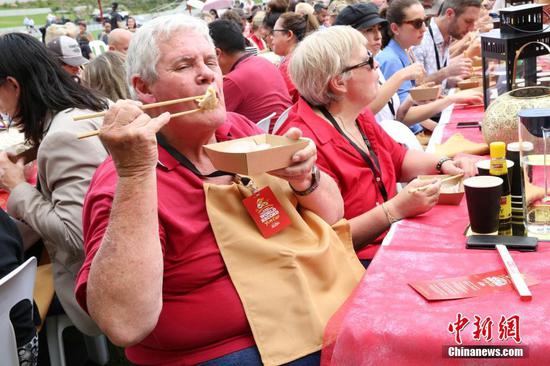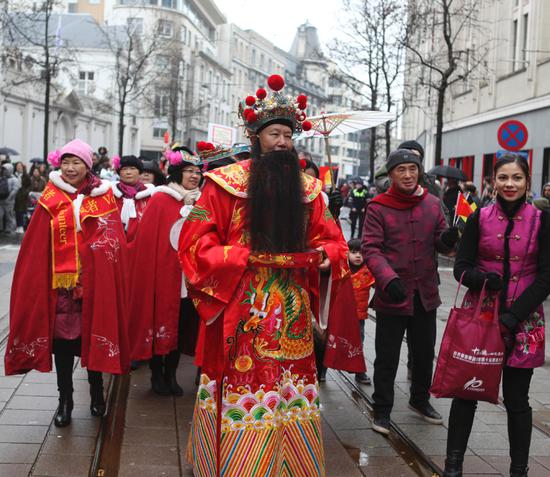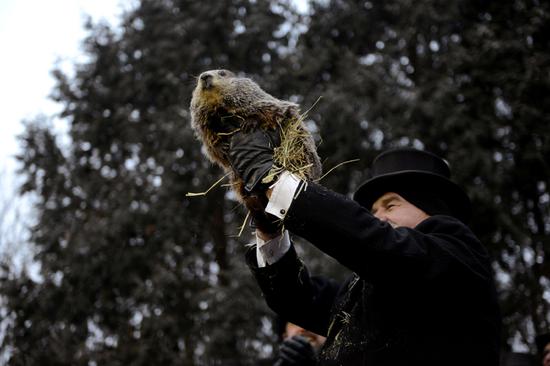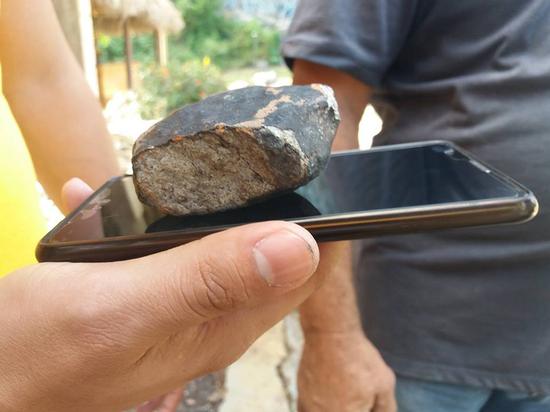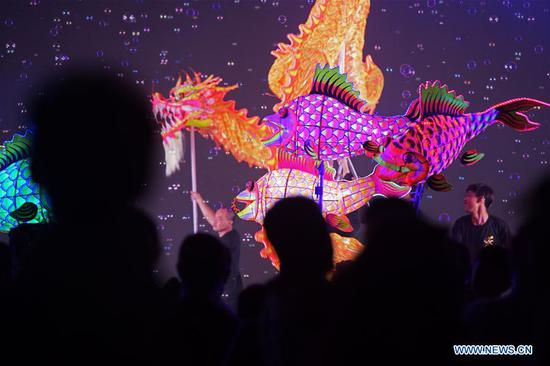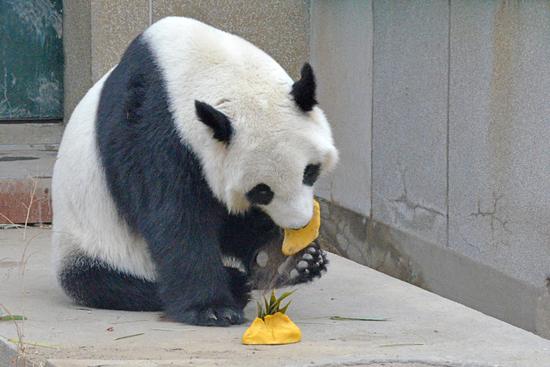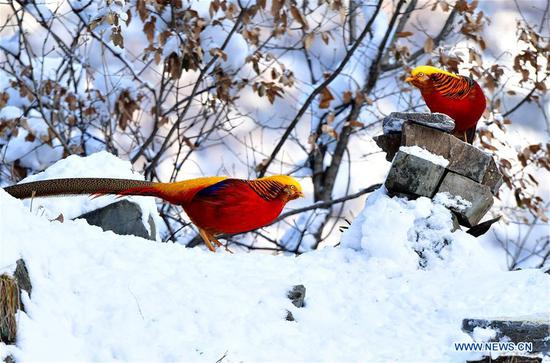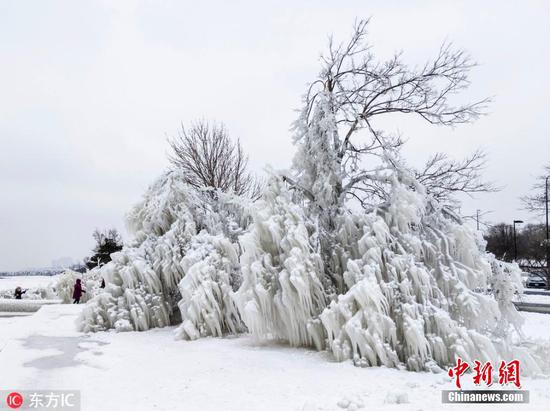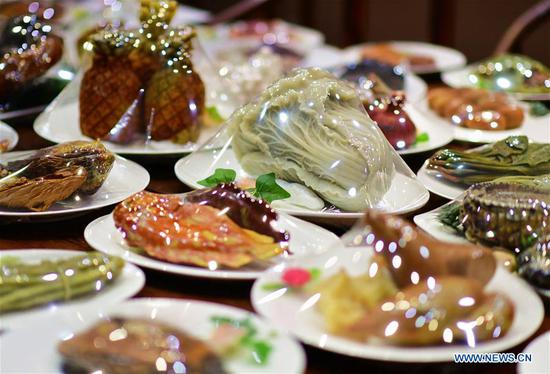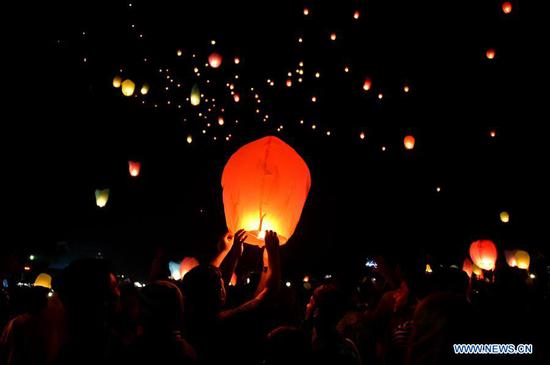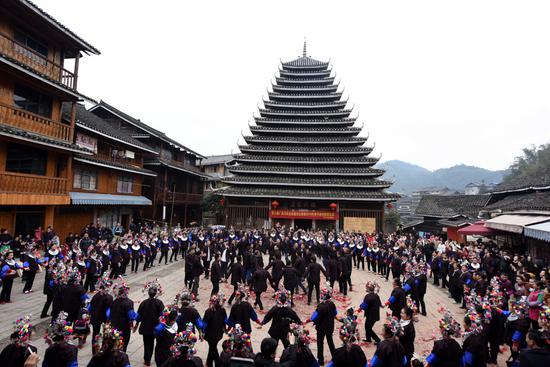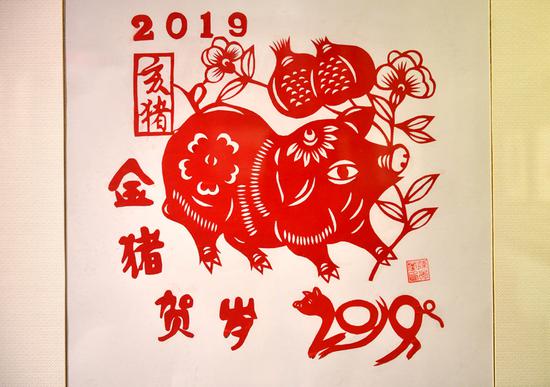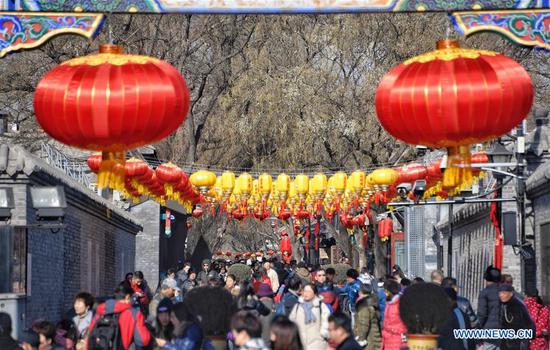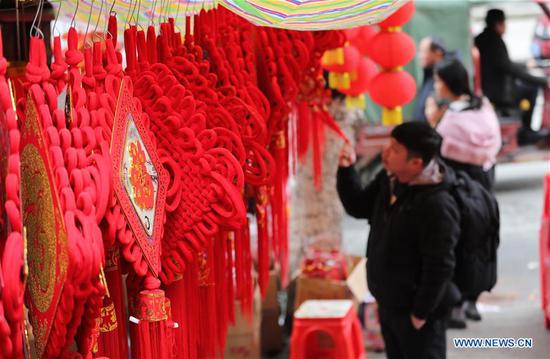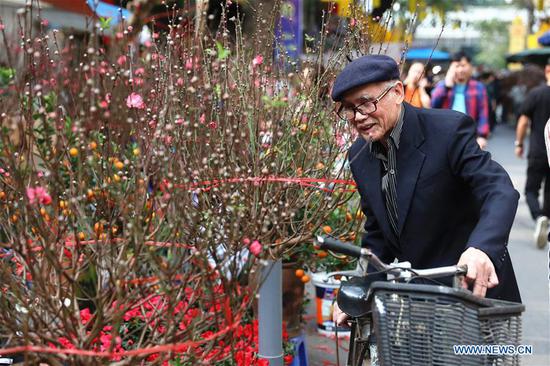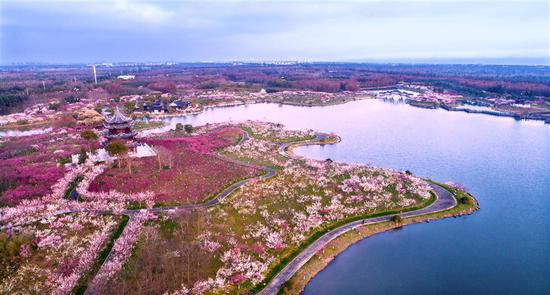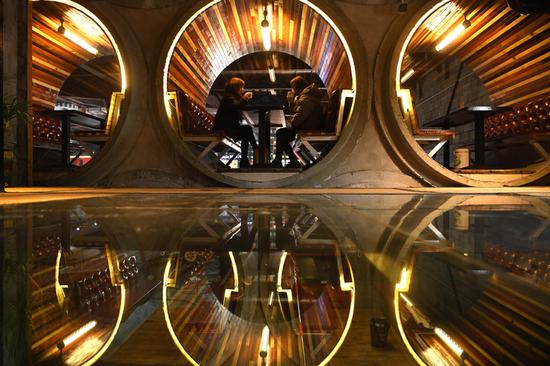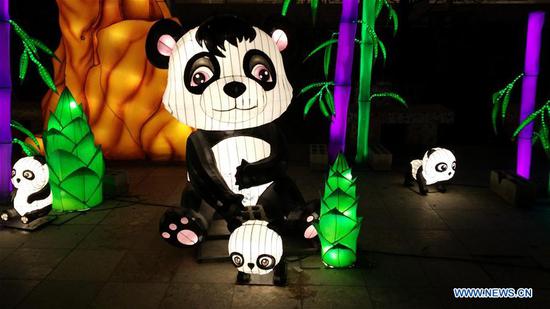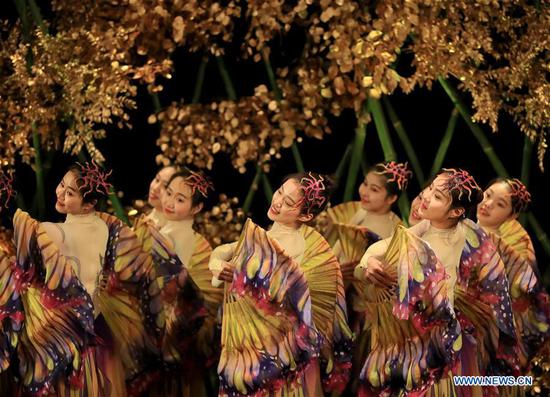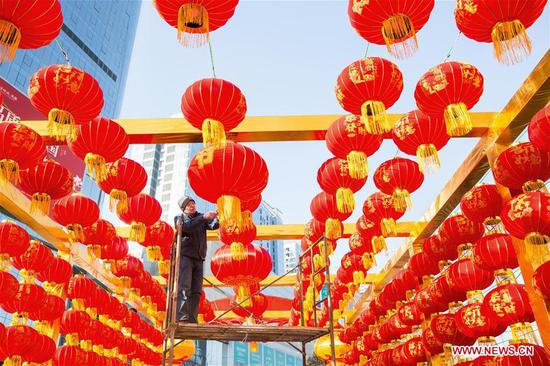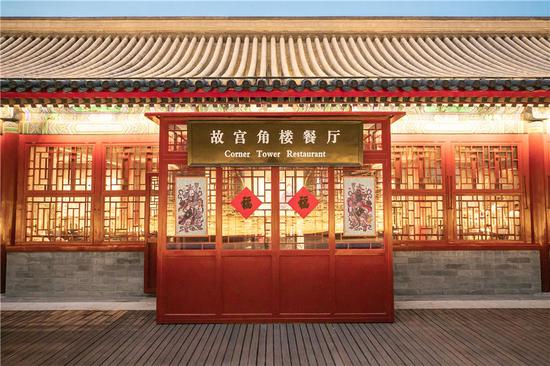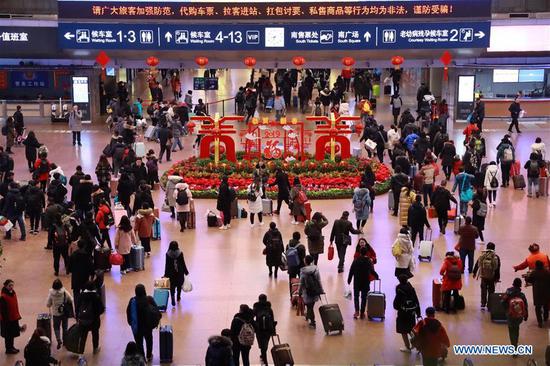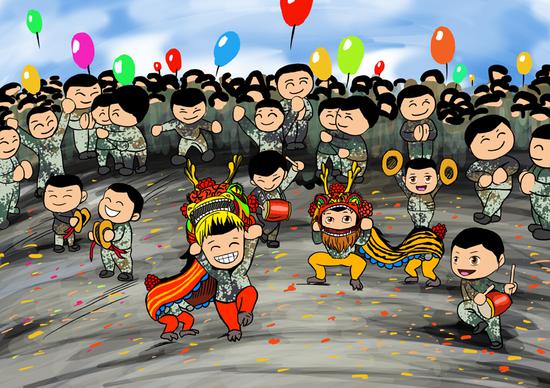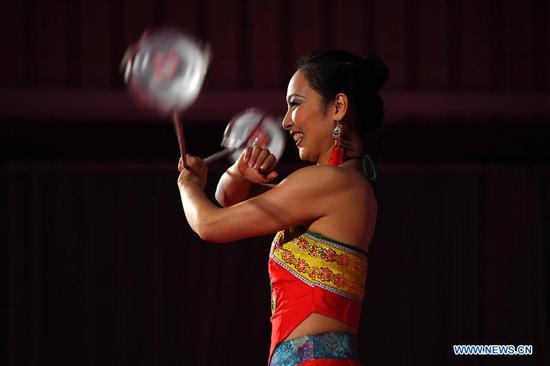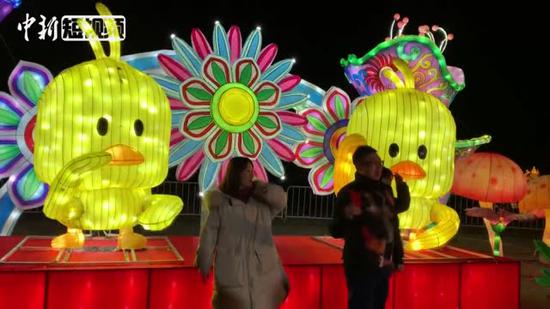"Dinosaur means 'terrible lizard'. So who gave it the name? " Ma Fengling, a Chinese-language tour guide, is interpreting the knowledge about the prehistoric reptiles to Chinese tourists at the Natural History Museum in London.
Ma's everyday work became especially busy during the Spring Festival, or Chinese Lunar New Year, as many Chinese tourists are spending their week-long holidays abroad.
"Chinese tourists flock to the museum during the Spring Festival holiday, attracted by the Dinosaur gallery in particular which houses one of the world's most important dinosaur collections. Children love to explore them," Ma said.
Chinese Lunar New Year falls on Feb. 5 this year. In China, celebrations begin about a week in advance and end with the Lantern Festival on the 15th day of the first month of the Chinese calendar. It witnesses China's largest seasonal migration throughout the year as people travel from all directions home for family reunion.
However, many are bucking the trend for a tour abroad. Data from Ctrip and other online travel agency show an estimate of 7 million Chinese are expected to travel to 900 cities across over 90 countries and regions during the week-long public holiday that lasts from Feb. 4 to 10.
Home to amazing museums, old castles, soaring cathedrals, quaint villages, timeless landscapes and history galore, Britain expects a boost in number of Chinese tourists over the Spring Festival period.
Flight booking data showed that bookings from China to Britain were up 24 percent from Jan. 30 to Feb. 12, compared with the same period last year, according to VisitBritain, the tourism body for Britain.
For Wu Peiling from south China's Guangdong province, this Spring Festival in Britain allows her family to have a r look of the country and experience the best of it, ranging from spending nights in local houses with different styles, enjoying an afternoon tea, visiting Oxbridge to watching a match in Manchester and visiting York, the popular Harry Potter hotspot.
Wu, together with two other families, have taken their children to foreign trips for years during the summer and winter vacations. Britain becomes the 18th destination for Wu's daughter, a secondary school student. "We don't have a very tight and fixed itinerary, but we do consider the different interests of our family members," said Wu.
Like many Chinese parents, Wu pays great attention to her daughter's education and bought her a scarf with badges of St. John's College at the University of Cambridge in hopes that she will work hard to get an offer from her dream university.
A growing number of well-off Chinese families are sending their children abroad on study tours, and Britain is one of their top destinations. "Parents don't mind to pay several thousand of pounds to broaden their children's minds, and they want the English-language environment and the chance to make their children more independent," said Wei Wei, with Golden Apple Tree, an education consultancy for study abroad.
"The behavior of Chinese tourists has been changing in recent years. Most typically they are more focused on experiencing local culture and nature, rather than shopping for luxury brands. They don't go to all the tourist attractions, some merely for photo purposes but are increasingly interested in exploring local streets, shops even markets," reckons Fang Gang, manager of Titicaca Travel.
Years ago there were times when a whole group of tourists would cancel visits to Oxford just to save more time for the Bicester Village, a designer outlet shopping center with 14 minutes' ride from central Oxford by train, but now people are willing to spend more time in Oxford than Bicester Village, Fang recalled.
"We almost stopped sales of one-day Bicester Village tour products because the demand has fallen sharply, reflecting a less strong desire to shop," he said.










